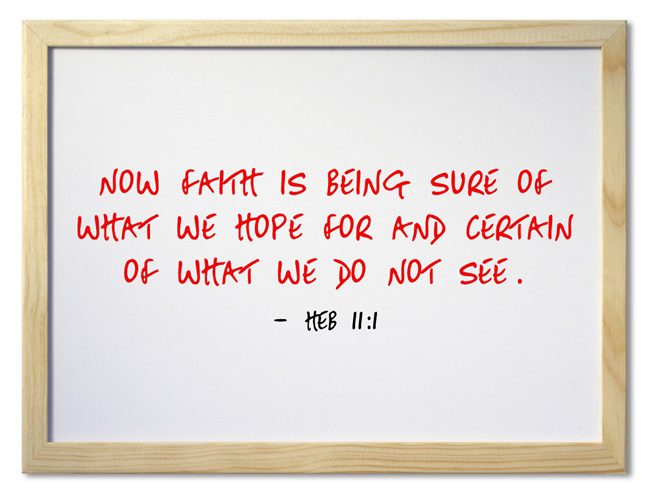Why was the Book of Hebrews written? Who wrote it? What does it have to do with Christians today?
The Author or Authors?
There is a lot of speculation about who exactly wrote the Book of Hebrews. One thing we can conclude is that we know that all Scripture is inspired by God or “God-breathed” so it doesn’t matter who the human author write was, the Author was God! The most likely candidate is the Apostle Paul because he was a Hebrew of the Hebrews and was “circumcised on the eighth day, of the people of Israel, of the tribe of Benjamin, a Hebrew of Hebrews; as to the law, a Pharisee” (Phil 3:5) so who better to write about Jesus Christ to the Hebrews or Jews than the Jew of Jews!? There is speculation it could have been Luke and Barnabas and maybe even Apollos, Silas, Phillip, Aquila or Priscilla. All we do know for sure is that it’s the inspired Word of God and it was likely written about AD 65.
The Purpose
The purpose for the Book of Hebrews is to show the supremacy and sufficiency of Christ as the High Priest Who intercedes for us, the Supremacy of Christ as God Himself, and as the Perfect, once-and-for all sacrifice that takes away the sins of the world. The old sacrificial system was job security for the priests because the sacrifices never really took away sins because “it is impossible for the blood of bulls and goats to take away sins” (Heb 10:4), they only covered them and they would have to be repeated day after day after day (Heb 10:11), which explains why there was no chair in the temple. The priest’s work was never finished. The author of Hebrews (or authors) wanted to keep the Jewish Christians from slipping back into the old sacrificial system as some had obviously done. They had to realize that Jesus died once and for all and no more sacrifice is needed since Christ was “offered for all time a single sacrifice for sins, he sat down at the right hand of God” (Heb 10:12).
The Focal Point
The author saw three different groups of Jews in writing this book; the Jews who believed, the Jews who believed but were still sacrificing, and the Jews who had only tasted of the goodness of God but hadn’t led them to repentance and faith. For the author(s), it was important for the undecided Jews to realize that today is their day of salvation and so, “Today if you hear His voice, do not harden your hearts as in the rebellion, on the day of testing in the wilderness, where your fathers put me to the test and saw my works for forty years” (Heb 3:7-9). What happened to Israel in the wilderness also happened to Pharaoh. Every time they rejected believing God or obeying God, their hearts were hardened. The author warned that they could reach a point to “have fallen away, to restore them again to repentance, since they are crucifying once again the Son of God to their own harm and holding him up to contempt” (Heb 6:6). It wasn’t as if they had lost their salvation, they apparently never had it in the first place. They just came close enough to receive it but didn’t and fell back into their old ways and perhaps even into the sacrificial system again.
A Better Priesthood
The Old Testament Levitical priesthood was a foreshadowing of the better priesthood work of Christ. One was temporary. One was permanent. One was a shadow, one was the reality. Jesus as the High Priest is Supreme over all priests because He is perfect in every way, like the lamb’s that were to be sacrificed, they had to be spotless and without blemish. So was Jesus; sinless and in perfection in every way. No better priesthood is humanly possible. This High Priest came into the temple of heaven and entered into the holy of holies with His own precious blood. For God, that was sufficient enough for all time for efficient enough for all sins. This High Priest offered Himself and now “he holds his priesthood permanently, because he continues forever” (Heb 7:24) and “he is able to save to the uttermost those who draw near to God through him, since he always lives to make intercession for them” (Heb 7:25). What more could you ask for a High Priest than to offer Himself for you, than to make it possible to draw near to God, and then to make intercession with the Father possible for the very first time.
Conclusion
The Book of Hebrews is a great study on Christology. If you want to see the supremacy and sufficiency of Christ, read this book. It shows you how the old pointed to the new, how the former covenant prefigured the better one. The High Priest says to all, “Come to me all you who want to be saved and I will forgive your sins” but as Judge, He says you will have to give an account for every sin in your life (Rev 20:12-15) and without the blood of Christ, you stand before God with no chance for repentance and forgiveness. Trust in Him today (2nd Cor 6:2).
Article by Jack Wellman
Jack Wellman is Pastor of the Mulvane Brethren Church in Mulvane Kansas. Jack is also the Senior Writer at What Christians Want To Know whose mission is to equip, encourage, and energize Christians and to address questions about the believer’s daily walk with God and the Bible. You can follow Jack on Google Plus or check out his book Teaching Children the Gospel available on Amazon.
















